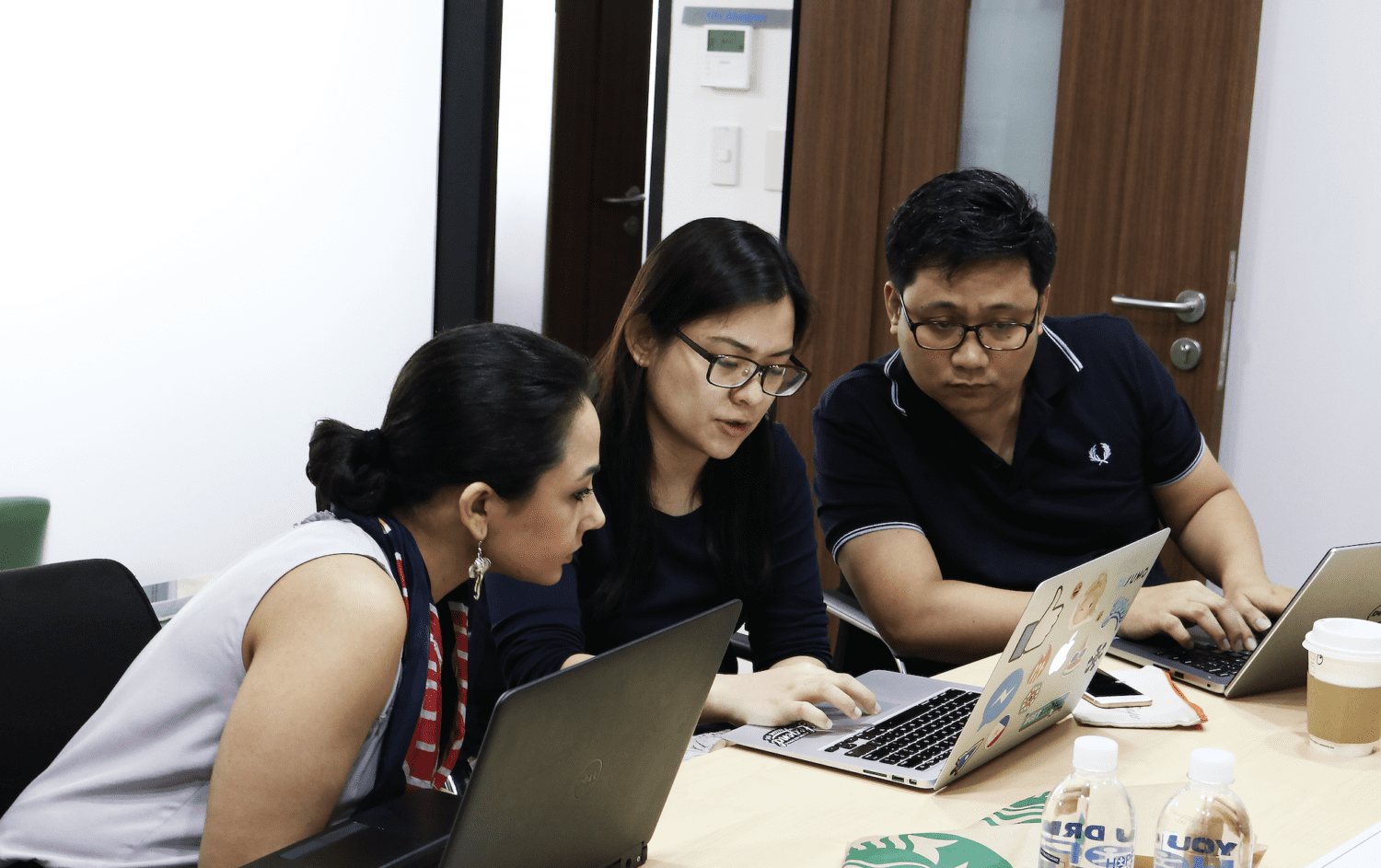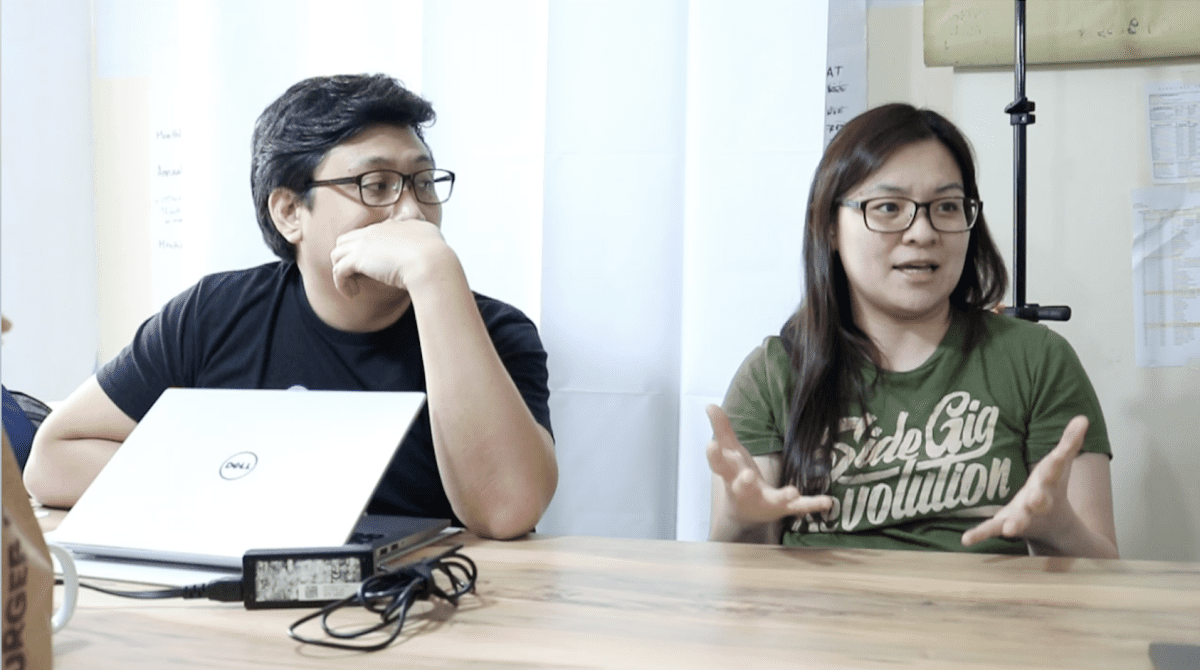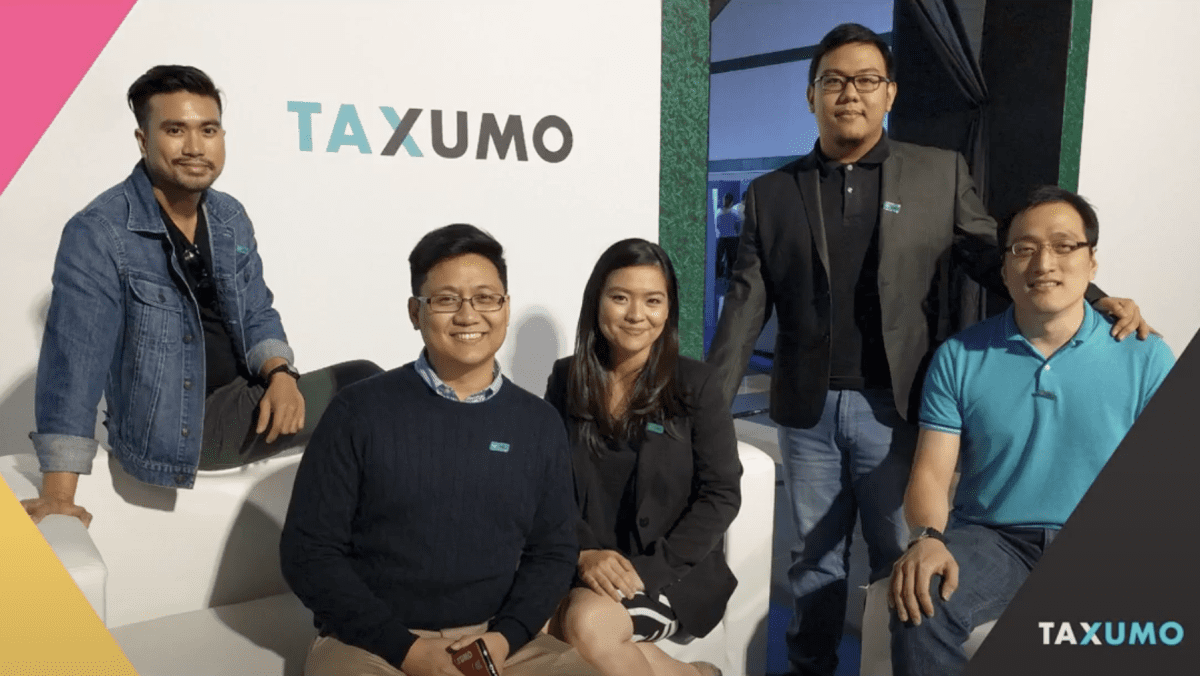By Adriel Nisperos
As the world continues to navigate in the vast and fast nature of the digital age, it also continues to transform the way it operates including how people render service or market products. In the Philippines, rapid growth is seen in the country’s gig (1) economy. In fact, the country is the sixth fastest-growing market for the gig industry according to the 2019 Global Gig Economy Index. (2) More and more Filipinos are joining the gig economy and embracing this new work setup not only because it offers more flexibility and convenience, but more importantly, it allows them to earn additional income.
The Philippine government recognizes the potential of freelancing (3) as a major contributor to the national economy. In 2018, the Department of Information and Communication Technology (DICT) spearheaded the Philippine Impact Sourcing Conference (PISCON) to further understand how this can work. According to DICT Undersecretary Mon Ibrahim, there are over 1.5 million Filipinos working online as freelancers. One can imagine how this rising gig industry in the country can create an impact on the national economy. However, despite this promising and fresh source of income, the freelancing industry and the Philippine government face tough challenges ahead.
Simplifying Tax Compliance through Taxumo
Similar to permanent employees, freelancers contribute to the country’s economic growth through taxes, making tax compliance a crucial aspect of their work. However, the Philippine government encounters difficulties in monitoring tax collection from this rising segment of the workforce, especially those who do not issue official receipts from their homes or online including freelancers. But the Philippine government is not alone in this challenge. Freelancers in the Philippines also face hurdles fulfilling their tax obligations as it needs extra time and effort. A freelancer would first have to go through the tedious process of understanding how the different tax-compliance processes work before actually filing taxes. Given the strenuous and complicated process, tax compliance becomes a time-consuming endeavor, which results in the need for freelancers to hire or outsource external accounting services.
EJ Arboleda, Founder of Taxumo, realized this problem when his wife Ginger Arboleda, who is a freelancer herself, also faced tax-related issues. The amount of work in solving the issues confounded them. EJ noticed how the problem takes away so much time and attention away from Ginger’s focus on her business. This led him to the idea of automating the whole tax filing process for his wife, and it turned out to be a seamless procedure. What was initially developed as a one-off solution inspired them to establish Taxumo, a software application that automates all tax-related activities. The once complex procedure of tax filing for freelancers can now be done with just a few clicks or taps.
Solving the tax issues of their business inspired EJ and Ginger to expand the reach of their software and create an impact on small businesses and to the Filipino freelancing community. “When you think about it, we could actually have made more money if we focused on corporations, you could charge a lot of stuff, and B2B [Business to Business] is also a lot easier, but we felt that going B2C [Business to Consumer] was the route that will allow us to make an impact so that is why we stuck with it,” EJ expressed.
“Focus more on your passion. Worry less about your taxes,” is the tagline of Taxumo. Experiencing the problem first-hand, EJ and Ginger wanted freelancers and entrepreneurs to dedicate more of their time and energy on their business and be freed from worrying about their taxes. Their application enables freelancers to manage their taxes with more ease and convenience as it offers an end-to-end online tax submission process. The application can be accessed anywhere and anytime using a smartphone, allowing its users to gain more control of their tax-related activities. In creating impact, Taxumo’s overall goal is to empower freelancers and entrepreneurs by freeing them more time to do meaningful work. “At the end of the day, money is money, but what we all want to do is leave a legacy, a lasting impact on the world,” EJ emphasized.
Frances Sales, a mother of three kids, is a freelancer and one of the first users of the Taxumo application. She described how fulfilling her business’ tax obligations was a nightmare for her before using Taxumo. “It involved a series of steps, one has to wait in line for DTI (Department of Trade and Industry) and BIR (Bureau of Internal Revenue), you will still have seminars to attend… Of course, as a mom, I did not want to spend my whole day there,” Frances shared. She found a significant difference when she started using Taxumo. According to her, the convenience brought by the application enabled her to perform transactions in just a few minutes, even in the comfort of her home.

Accelerating Growth to Create a Scaled & Lasting Impact
Compliance
In 2018, Taxumo joined the Social Impact Accelerator with the drive to understand better and to scale their business’ social impact. Better measurement of their impact helped them in terms of accreditation from the Government, which is crucial in the nature of their business. “We have been able to successfully push for accreditation with the BIR. They created a category [Tax Service/Software Provider] for us so that they can formally partner with us,” EJ shared.
Social Impact and M&E Utilization
During the course of their one-year acceleration in the Social Impact Accelerator, Taxumo went through a series of capacity-building activities and trainings which focused on growing their social enterprise and scaling up their social impact. Before joining the accelerator, they only had an idea of the change they were making, but tracking that impact was also important for them. “What ISIP did is that it helped us understand how we could measure that impact in the context of the UN Sustainable Development Goals (SDGs). That framework allowed us to understand what metrics we should be looking at and how we should adjust our direction and strategy such that it would address those goals,” EJ recalled.
EJ and Ginger also looked back to one of the notable learning sessions they attended in the accelerator. They had the opportunity to sit down with Rabayl Mirza of Business Call to Action to draft a framework for their social impact. Consulting with Rabayl, they found out that they can measure other metrics that would be helpful in their business strategies. An example of this is measuring Taxumo’s impact on gender. “We changed the User Interface of our application form to measure gender-specific information. We didn’t have that before. We’re now creating strategies that are more geared towards women,” Ginger shared. Taxumo later learned through their platform that 61% of their clients are women. Aside from gender, they are also looking to develop how they can measure the number of employment opportunities that were created after helping small businesses through their platform in terms of government compliance.
Financial Sustainability
Solidifying their social impact is only one of the major changes they experienced while accelerating under the ISIP project. When they entered the program, they were also fundraising for Taxumo to become financially sustainable. Part of the services provided to SEs in the Social Impact Accelerator is connecting social enterprises to potential investors, funders, and creditors. Taxumo, while attending the learning sessions, was able to access and build networks in raising funds, particularly in terms of leads generation. A challenge they experienced in fundraising is looking for investors who share the same vision in creating an impact on society. “One of the usual problems we’ve had before was that they [investors] would be focused more on the return on investment. That’s not impact investing at all,” EJ explained.
ISIP connected Taxumo to Manila Angel Investors Network (MAIN) during the Social Enterprise Showcase in March 2019. Taxumo, along with the other social enterprises in the Social Impact Accelerator, pitched to investors (including MAIN) and partners coming from the combined network of UNDP Philippines, PhilDev Foundation, and the Australian Embassy in the Philippines. After a series of calls and meetings, Taxumo and MAIN successfully came into agreement, crafting term sheets for investment.
Mikko Perez, Founder and CEO of Ayannah, served as Taxumo’s primary mentor during the acceleration program. According to EJ, their mentor gave them practical advice and tips while crafting pitches to potential investors. “He taught us what investors are looking for in an enterprise. It changed our approach in presenting to investors,” EJ shared.
Growth Plans
At present, Taxumo is helping more than 13,700 clients in their tax compliance processes. But Taxumo’s growth is unceasing. In the next three years, they are motivated to grow further and serve more than 156,000 clients or 3.47% of their total market. They are also planning to expand their services to accomplishing other government requirements. “One of the big pain points with working with government is that there is no standardization. When you want to register in Taguig, it’s going to be different when you want to register in Manila. We also want to do something about that,” EJ expressed.
To date, Taxumo is also assisting their clients in processing their business registration requirements. But in five years’ time, Taxumo is driven to also be able to provide services to other government agencies. “It’s really more on the realm of GovTech (Government Technology). There are still a lot of agencies that need help in terms of automation,” Ginger added. The two further expressed that in order to achieve their growth plans, they would need the help of ISIP in terms of getting access to other GovTech platforms and other potential partners.
Community Relations
The impact that Taxumo is creating goes beyond their intelligent mobile platform. They also educate their clients about the manual process of tax compliance, tax computations, and even tax reform. They organize training sessions and workshops to explain how taxation works. “Taxes are a really complicated subject, especially for people who want to get into business, to get into a career, those who work-from-home, they don’t have accounting backgrounds. We run several workshops,” Ginger cited. On their website, Taxumo also regularly maintains their blog section which explains various tax-related topics in a more readable fashion.
Breaking down a complex topic such as taxation into smaller, more digestible chunks is a challenge they continue to navigate at Taxumo. “When you go through the processes with government, there are a lot of steps, a lot of documents that you need to hand over, so that’s a challenge. How do you make it simpler for a customer to understand what he/she needs to do,” Ginger expressed. However, Ginger was grateful they were able to create a brand that their clients can trust. For her, it is an important factor to consider. “We realized that it’s more about making them feel comfortable using the platform and making them trust the system enough so that they use it.”
Strengthening the Backend of the Social Enterprise
Similar to the growth of their mobile application, the team behind Taxumo continues to mature relentlessly. According to EJ, they continue to iterate their product and identify ways they can create bigger impact on their clients. They consider this as one of the strengths of their social enterprise. “We’re very big in terms of making sure that what we have is not yet final, and the team is free to speak up and share their insights about how Taxumo operates and reaches its goals,” EJ shared. This is a culture they have developed inside their social enterprise. Ginger also cited that as they continue to grow, they ensure that their mission and principles are well-engraved into the hearts of their team. “From the product developers to the messenger, they actually know what our mission is.”
As founders of Taxumo, EJ and Ginger also grew up with the social enterprise. For EJ, he recalled how Mikko, their mentor, helped them with fundraising. Ginger, on the other hand, emphasized how their impact measurement model significantly affected their business decision-making process. Being part of the inaugural batch of social enterprises in the Social Impact Accelerator, the founders cited that meeting and growing with fellow social entrepreneurs helped them understand the different industries and markets in the social enterprise ecosystem. This also allowed them to explore potential collaborations which can help them further develop their product and train their team. An example of this is their collaborative opportunity with Virtualahan in serving persons-with-disabilities who are self-employed.
Turning the Vision into Reality

Taxumo has come a long way since they launched their platform in December 2016. Born with mission-driven team members, Taxumo continues to expand their impact to many freelancers and entrepreneurs nationwide. Now almost three years into the business, Taxumo is driven to ensure that their clients will be able to indeed focus more on their passions and worry less about their taxes. “We’re here for you,” Ginger assures their community.
“I’ve experienced being in the chaotic state of not being able to file your taxes, not being able to pay the penalties you have incurred… you feel frustrated because everything is so messy. But you don’t know why, and you can’t explain what’s happening,” Ginger looked back when she was starting being a freelancer.
With the gig economy also continuously growing faster, their platform has become more relevant than ever in terms of ensuring that this segment of the economy contributes to the country’s economic growth and that more self-employed Filipinos are empowered to make a living.
(2) Reference: https://smebanking.news/resources/17044-the-global-gig-economy-index/
(3) Although there is no standard definition of what freelancing means, one can consider him/herself as a freelancer if he/she engages in short-term or temporary work, much like independent contractors.

